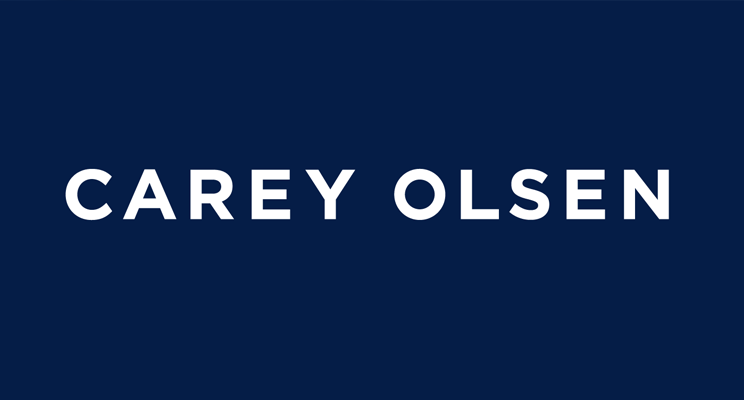
The rules on disclosure and inspection of documents in litigation are complex and often leave much room for debate. This is particularly true in the contentious area of unintended compulsory disclosure caused by a passing reference in a witness statement. The consequences of mentioning a document in evidence has long been a trap for the unwary, sometimes leading to crucial additional, unintended, disclosure.
Recently, a judgment handed down by the English High Court cast further light on what documents may be subject to disclosure for the sake of being “mentioned” in the witness statement. The Court’s interpretation of the relevant procedural rules provides more certainty for legal practitioners and their clients alike as to the scope of disclosure and should serve as strong persuasive precedent in the offshore jurisdictions where broadly analogous procedural rules tend to apply.
In Hoegh & Anor v Taylor Wessing Llp & Anor1, a defendant sought an order for the production of a document/documents mentioned in four paragraphs of a witness statement in support of the claimant. The relevant rules required disclosure of a mentioned document, and included the proviso that a ‘document is mentioned where it is referred to, cited in whole or in part or there is a direct allusion to it.’
The document(s) sought was regarding a review that the claimants instructed PriceWaterhouseCoopers LLP (PwC) to undertake in around March 2021, and the ground for disclosure was based on the fact that the witness statement made a direct allusion to it. In interpreting what constitutes “direct allusion”, the Court reviewed and relied on previous case law, including the English Court of Appeal’s rulings in Dubai Bank and Rubin. In particular, the judgment provides a comprehensive review of the tests as developed by the Courts in the interpretation of the rules.
Key Lessons from previous authorities
Three key lessons were drawn from previous authorities. First, the class issue. The Court of Appeal in Dubai Bank Limited v Galadari2 acknowledged the correctness of the decision in Smith v Harris3 to hold that the reference could be to an individual document or a class of documents:
“a compendious reference to a class of documents, as opposed to a reference to individual documents, is well capable of falling within the rule, providing that it is indeed a reference4.”
Secondly, inferences that a document exists are not sufficient. The Court of Appeal in Dubai Bank rejected the application for the production of certain bank accounts referred to in the affidavit on the basis that, although a bank account would usually be evidenced by documents, it was not itself a document. In particular, the applicant’s counsel’s submission that if there is reference to a transaction which, on the balance of probabilities, will have been effected by a document that must involve a reference to the document, is rejected:
“In our judgment, a mere opinion that on the balance of probabilities, a transaction referred to in a pleading or affidavit must have been effected by a document, does not give the court jurisdiction to make an order under R.S.C., Ord. 24, r. 10, unless the pleading or affidavit makes direct allusion to the document or class of documents in question5.”
Thirdly, reference to the effect of a document rather than its contents is also not sufficient for disclosure. In Rubin v Expanadable Ltd6 , the Court of Appeal made a distinction between the reference to the effects and contents of a document and held that only the latter could result in disclosure.
“It appears therefore that a reference to a conveyance, guarantee, mandate or mortgage … would be a reference to a document as would reference to the contents of such documents: but that the mere reference to the effect of some transaction or document, such as to say that a property was conveyed or that somebody had guaranteed a loan would not be sufficient7.”
The Court concluded that the reference in a witness statement of “he wrote to me” was “not a mere reference to a transaction otherwise to be inferred as effected by a document, as in ‘he conveyed’ or ‘he guaranteed’ but is a direct allusion to the act of making the document itself. It is the same as saying ‘he wrote a writing8’.”
The Application in Hoegh v Taylor Wessing
The references made in the witness statement in Hoegh v Taylor Wessing were as follows:
(i) “PwC were instructed to undertake a review of the Applicants’ tax affairs”;
(ii) “it was initially anticipated that the bulk of the Review had already been substantively completed by the Respondents”;
(iii) “since their instruction in relation to the Review”;
(iv) “the consequences of the original negligence, some of which were only revealed by PwC’s Review”.
The Court accepted that it is likely that the review undertaken by PwC would result in documents being generated; however, as a matter simply of language the review was a process, which probably generated documents, but it was not itself a document or a collection of documents or even a compendious reference to a class of documents nor did it “comprise of” documents. The Court opined that as a process, the ambit of such documents as the PwC review may have generated is likely to be rather more diffuse than the process of a transaction such as a property being conveyed, somebody guaranteeing a loan, somebody filing an appeal or the transactions referred to in the Rudd case. It further rejected the submission that references to “advice” or to “findings” constitute direct allusions to any documents that necessarily exist or to the contents of any such documents.
The judge also considered a recent case that seems to depart from the Court of Appeal’s decisions. In Scipharm v Moorfields Eye Hospital NHS Foundation Trust9, the following reference was made in the witness statement: “Our solicitors spoke to Margaret Beveridge, … the business development manager of the defendant… Mrs Beveridge was able to confirm a number of matters and provide information some of which was pleaded in the particulars of claim. Mrs Beveridge confirmed to our solicitor that …” The Judge in Scipharm accepted that absent any other explanation, the inference must be that the statement made in the witness statement refers to an attendance note or similar and therefore its production was ordered.
Although Deputy Master McQuail in Hoegh v Taylor Wessing is of the opinion that the reference made to the attendance notes in the witness statement in the Scipharm case was no more than references by inference, the Court considered this case as one not justifying a departure from the Court of Appeal’s rulings in Dubai and Rubin. The decision in Hoegh v Taylor Wessing provides more certainty for the interpretation of relevant procedural rules regarding disclosure of documents mentioned in the witness statements. It also serves as further guidance for both lawyers and their clients in the manner in which references shall be made in the witness statements to avoid inadvertent disclosure of documents. There does, however, remain the need for considerable caution when referring to any documents in witness evidence, however obliquely.
This article provides general guidance and is not legal advice; specific advice should be taken on the application in any particular situation.

Jeremy Lightfoot
jeremy.lightfoot@careyolsen.com
+852 3628 9016
Jeremy Lightfoot is the head of Carey Olsen’s litigation
team in Hong Kong. He focuses on commercial and corporate
litigation, insolvency and restructuring under the laws
of Bermuda, the BVI and the Cayman Islands.

Yi Yang
yi.yang@careyolsen.com
+852 3628 9026
Yi has a wide range of experience assisting in cross-border
commercial litigation, including shareholder disputes,
derivative actions, contentious insolvency and appraisal
actions involving offshore companies.















